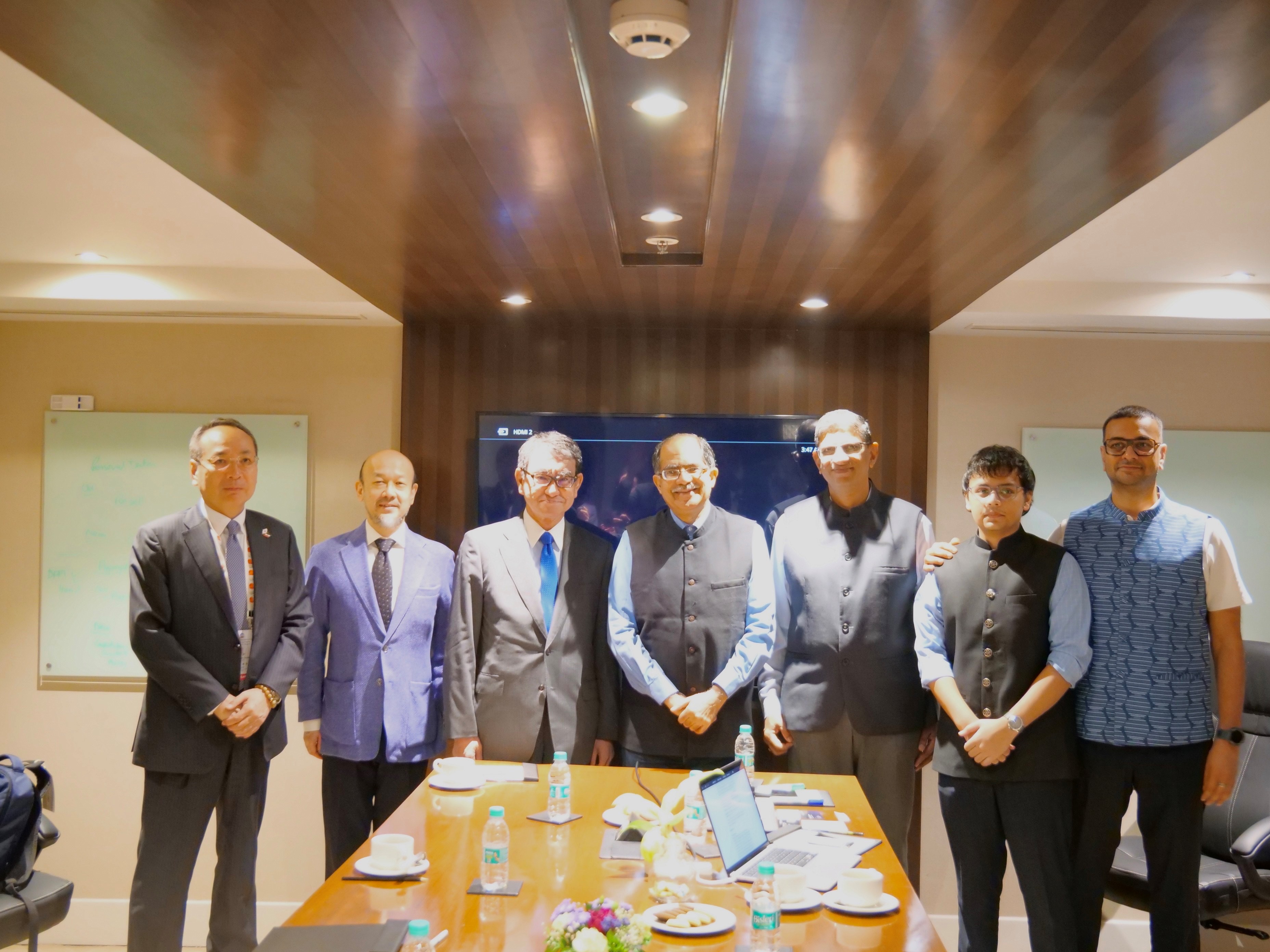Mr. Taro Kono, Minister for Digital Transformation, visited the Republic of India
- Published:
Published on August 22, 2023
From August 17 to 20, Minister Kono visited the Republic of India to participate in the G20 Digital Economy Ministers Meeting. He met with ministers from the G20 member countries and other officials to exchange views, and visited several digital organizations and companies in Bengaluru, India.
The G20 Digital Economy Ministers Meeting is one of the ministerial meetings of the G20 Summit, which will be held on September 9 and 10. The meeting was attended by member countries, regions as well as invited countries and relevant international organizations to discuss various issues related to the digital economy. Based on the discussion results, the meeting issued the Outcome Document and the Chair's Summary.
The importance of DFFT which Japan proposed at G20 OSAKA Summit was reaffirmed at G20 Digital Economy Ministers Meeting this year. Minister Kono held bilateral meetings with G20 participating ministers and other officials to introduce the establishment of the Institutional Arrangement for Partnership (IAP) for the operationalization of DFFT, as agreed at the G7 Digital and Tech Ministers' Meeting in Takasaki, Gunma, as well as the G7 Hiroshima Summit. He also outlined the priority projects to be addressed in the IAP and the need for collaboration on key use cases, for which he received strong interest and agreement from the ministers.
1. G20 Digital Economy Ministers Meeting
The G20 Digital Economy Ministers Meeting, chaired by India, was held in Bengaluru, on August 19 (Sat), and Mr. Kono, Minister for Digital Transformation, participated to the meeting. During the G20, discussions were focused on the following 3 themes, and based on the results, the meeting issued the Outcome Document and the Chair's Summary.
- Digital Public Infrastructure for Digital Inclusion and Innovation
- Building Safety, Security, Resilience and Trust in the Digital Economy
- Digital Skilling for Building a Global Future Ready Workforce
Mr. Tsuge, State Minister for Internal Affairs and Communications, also participated in the G20 Digital Economy Ministers Meeting.
The discussions at the G20 confirmed that an open, interoperable, secure, and inclusive digital infrastructure will pave the way for the future economy. This can drive growth and innovation and promote sustainable development. Minister Kono stated the importance of enhancing international cooperation by increasing the value of digital infrastructure systems in each country through interoperability and stressed that Data Free Flow with Trust (DFFT) will be the key to achieving this goal.
Ministerial Declaration
G20 Digital Economy Ministers Meeting, Outcome Document & Chair's Summary
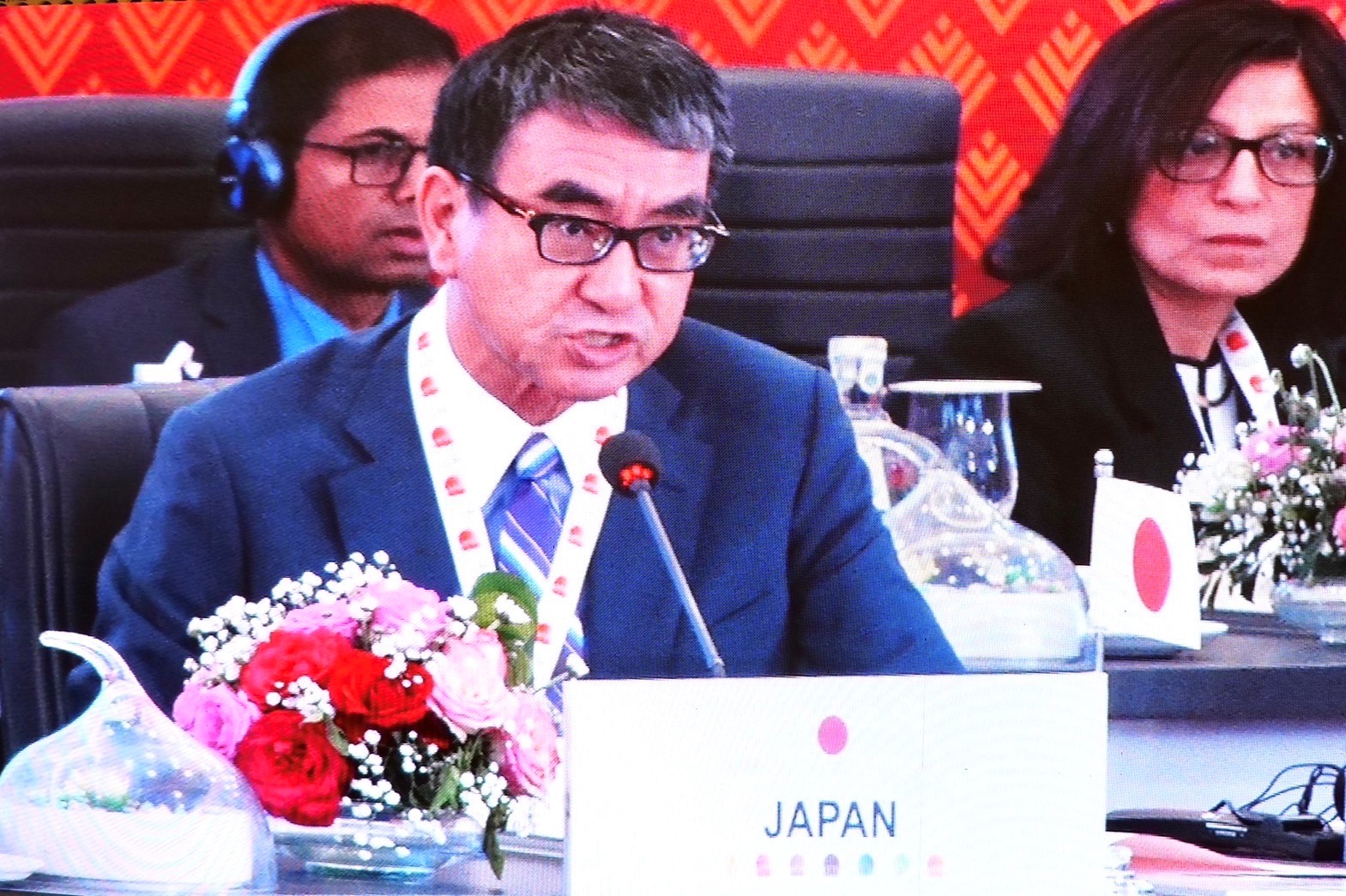
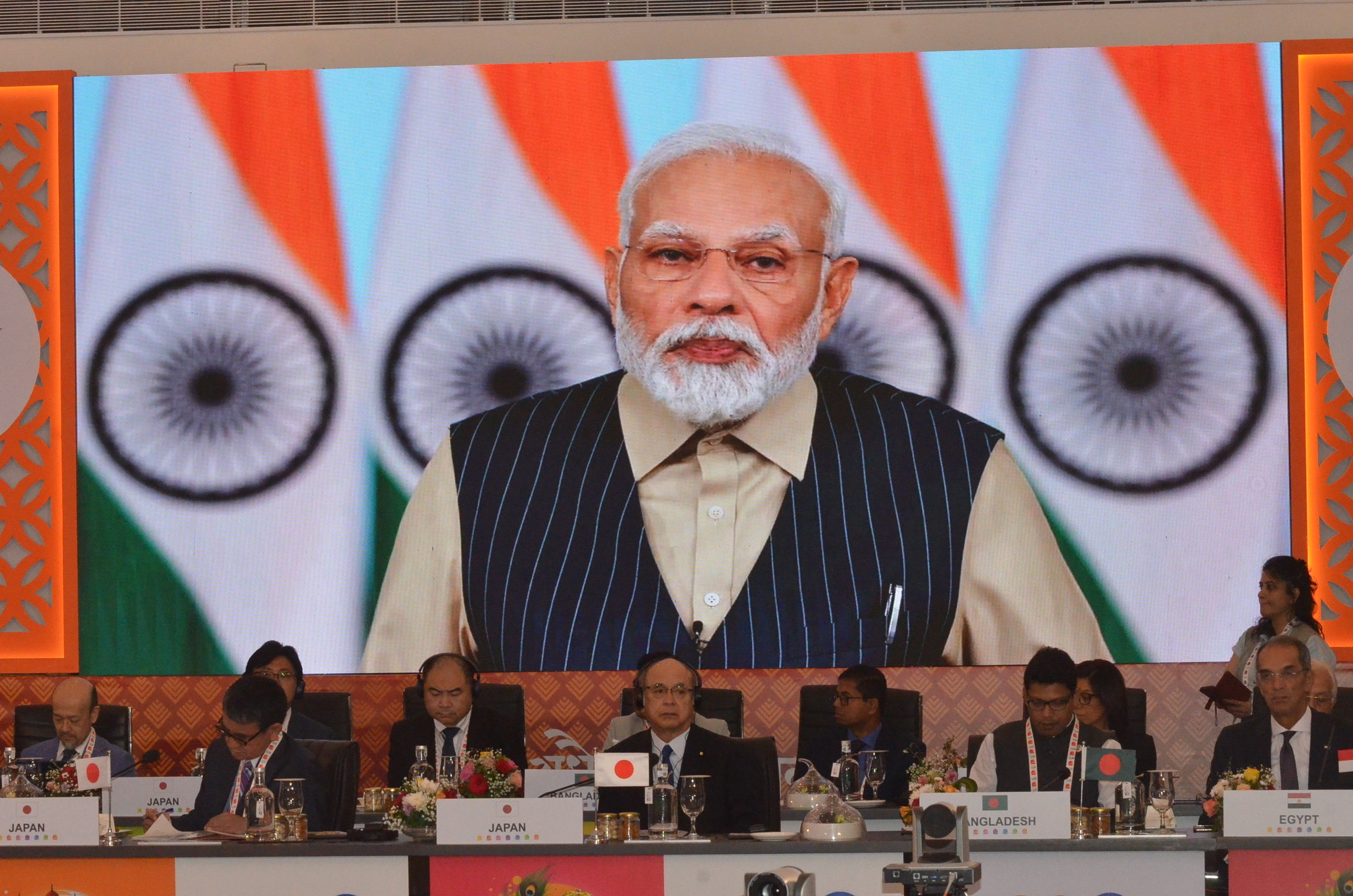
2. Bilateral Meetings
On August 18 and 19, bilateral meetings were held with ministers from G20 member countries and other officials.
1. India - Meeting with Mr. Ashwini Vaishnaw, Hon'ble Minister of Railways, Communications; and Electronics and Information Technology
Minister Kono had a meeting with Minister Vaishnaw of India, the chairing country of G20 this year. Regarding the G20 outcome document, Minister Kono received appreciation from India for the dedicated support in the areas of DPI, security and digital skills. Minister Kono expressed his appreciation for the efforts made by India to include DFFT in the outcome document. The ministers discussed the international money transfers and Minister Kono explained the framework of the IAP. In reply, Minister Vaishnaw stated that cross-border data flows are an issue that every country needs to address and expressed interest in exploring India's potential involvement in the IAP.
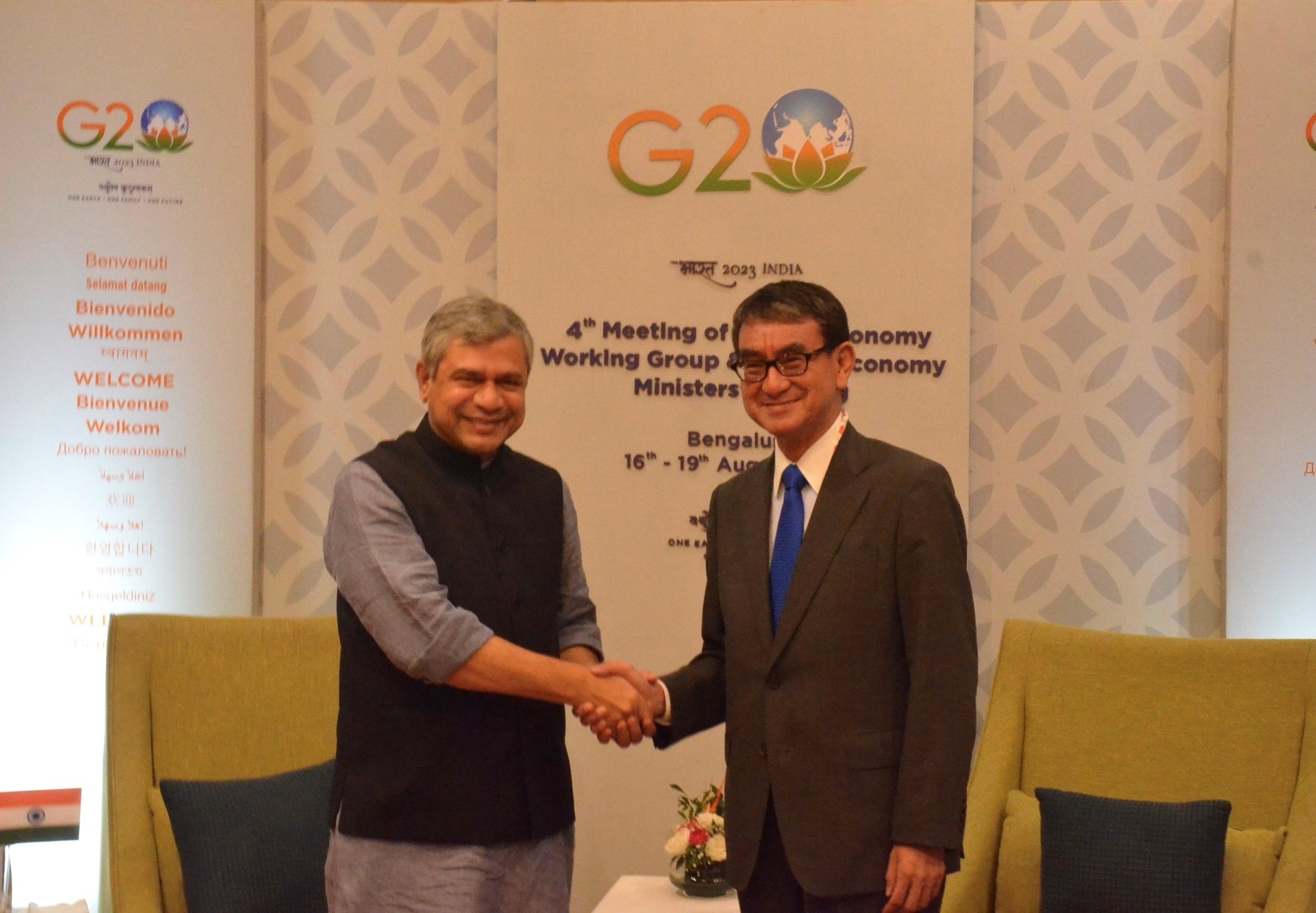
2. Saudi Arabia - Meeting with Mr. Abdullah bin Amer Al-Sawaha, Minister of Communications and Information Technology
Minister Kono introduced the establishment of the IAP and explained cooperation on specific projects to solve issues related to cross-border data flows. In response, Minister Al-Sawaha expressed his intention to collaborate in the operationalization of DFFT and then referred to the promotion of green hydrogen as a country aiming at a circular carbon economy and highlighted the cooperation and the enhancement of carbon credits and digital IDs. He also explained the progress and future projects of NEOM, the smart city in Saudi Arabia.
In terms of AI, the ministers exchanged views on issues including the inequity in the amount of information stored by language.
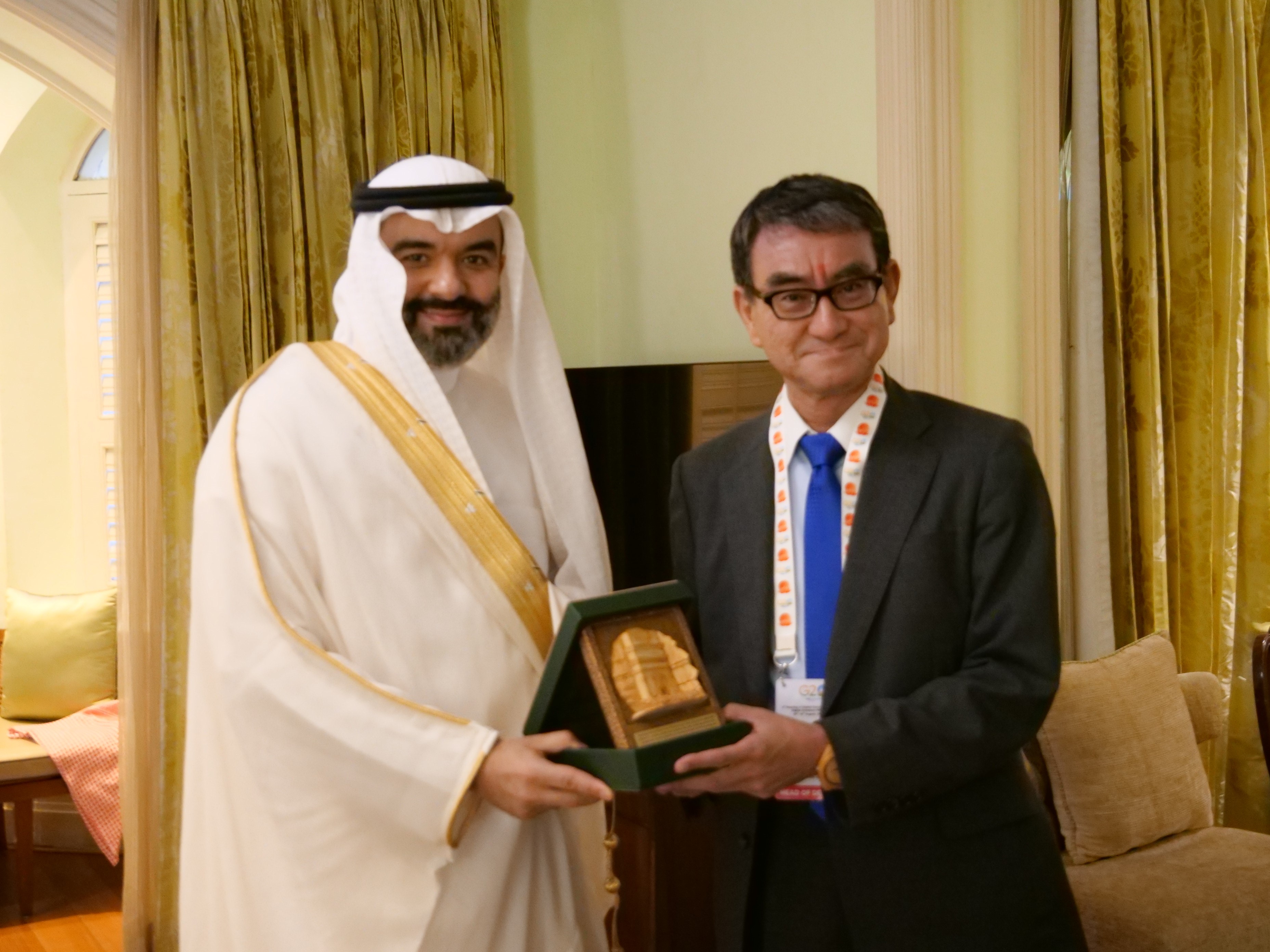
3. Indonesia - Meeting with Mr. Budi Arie Setiadi, Minister of Communication and Information Technology
Minister Kono had a meeting with Minister Setiadi of Indonesia, the chair of G20 last year. He expressed his gratitude for the continued discussions on DFFT at the G20 Indonesia and introduced the establishment of the IAP. He stressed that participation in the IAP is not limited to the G7 countries, and that Japan would like to work closely together with the G20 countries and the ASEAN region. Minister Setiadi agreed that the establishment of the IAP is a good approach and expressed his intention to collaborate with Japan on specific projects. He also explained the significant role that startups play in Indonesia's ongoing digitalization, and the two sides exchanged views on the mutual expansion of startups in both countries.
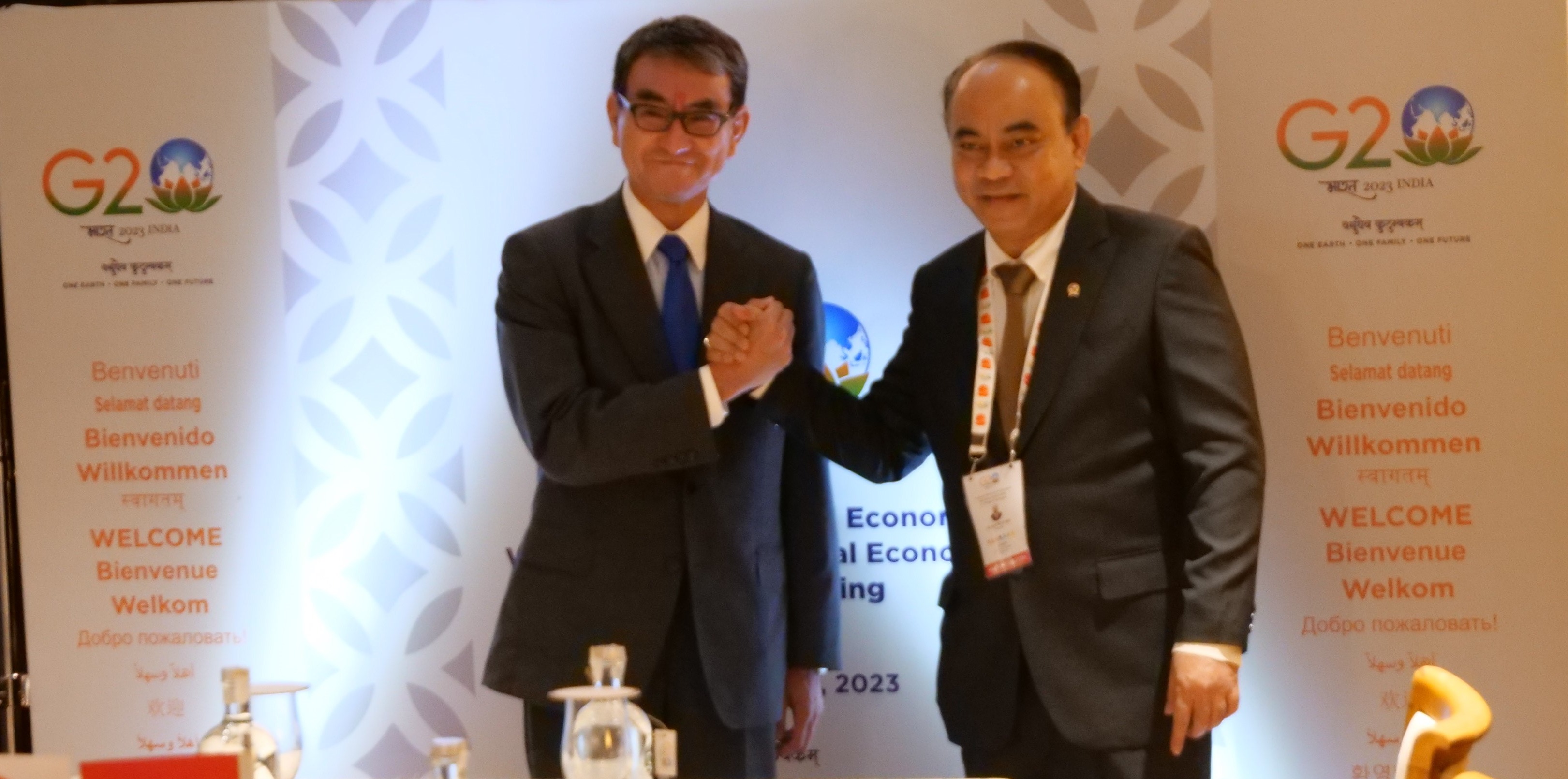
4. Netherlands - Meeting with Ms. Alexandra van Huffelen, Minister for Digitalisation
Minister Kono introduced the establishment of the IAP to Minister Huffelen and asked for cooperation on the specific projects such as the creation of the international database regulated by each country to increase transparency. Minister Huffelen agreed to collaborate in addressing the issues and operationalizing DFFT. In addition, the ministers discussed issues related to AI, such as the inequity in the amount of information stored by language and the regulation of generative AI, as well as updates on digitalization in the Netherlands.
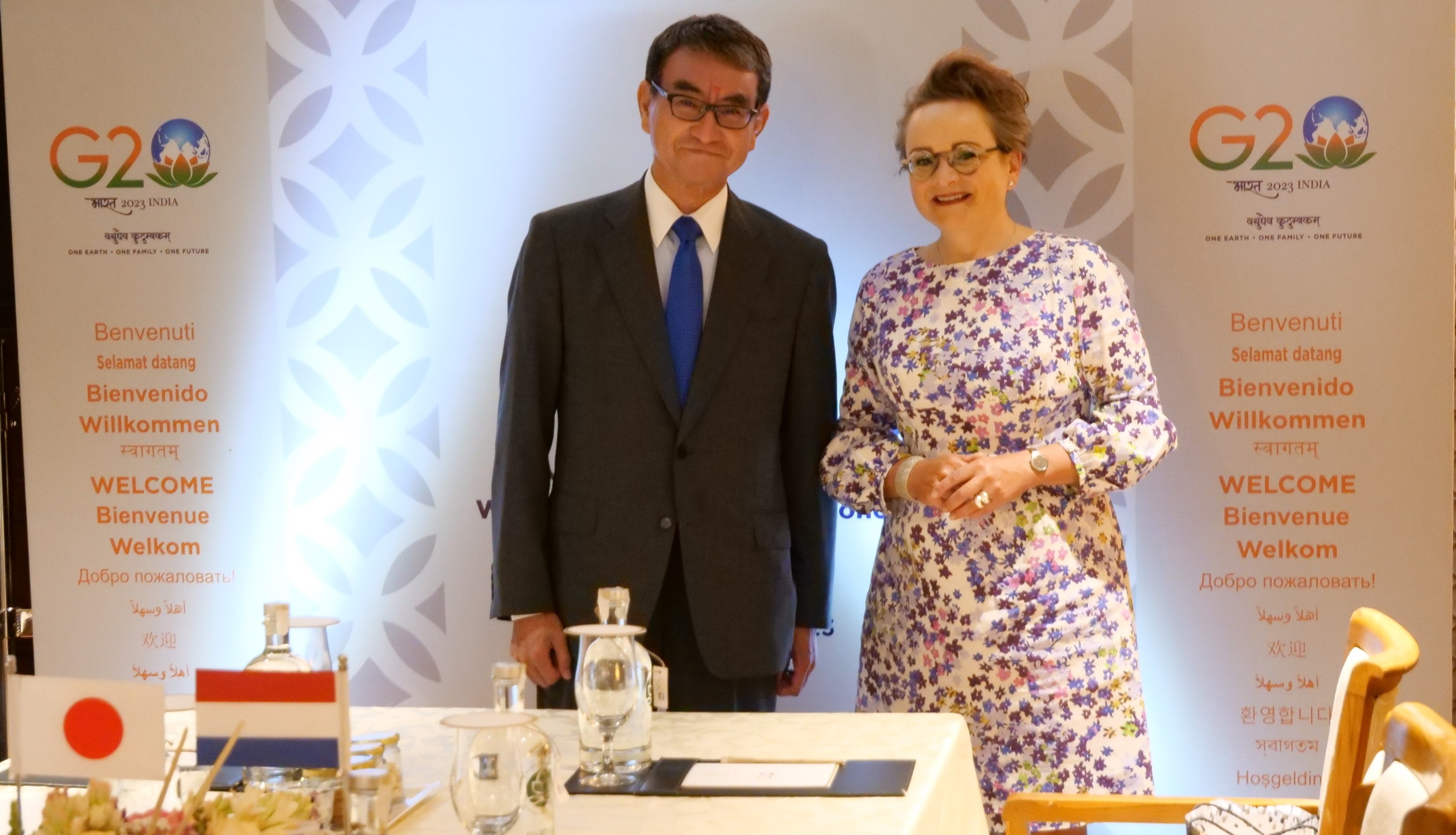
5. United States - Meeting with Mr. Nathaniel C. Fick, Ambassador at Large, Bureau of Cyberspace and Digital Policy, Department of State
Minister Kono introduced the establishment of the IAP in the meeting and Ambassador Fick expressed gratitude for DFFT and the Hiroshima AI Process for the contributions following the G7 Digital and Tech Ministers' Meeting in Takasaki, Gunma and stated the support for Japan's issues to address language inequity in information storage related to AI.
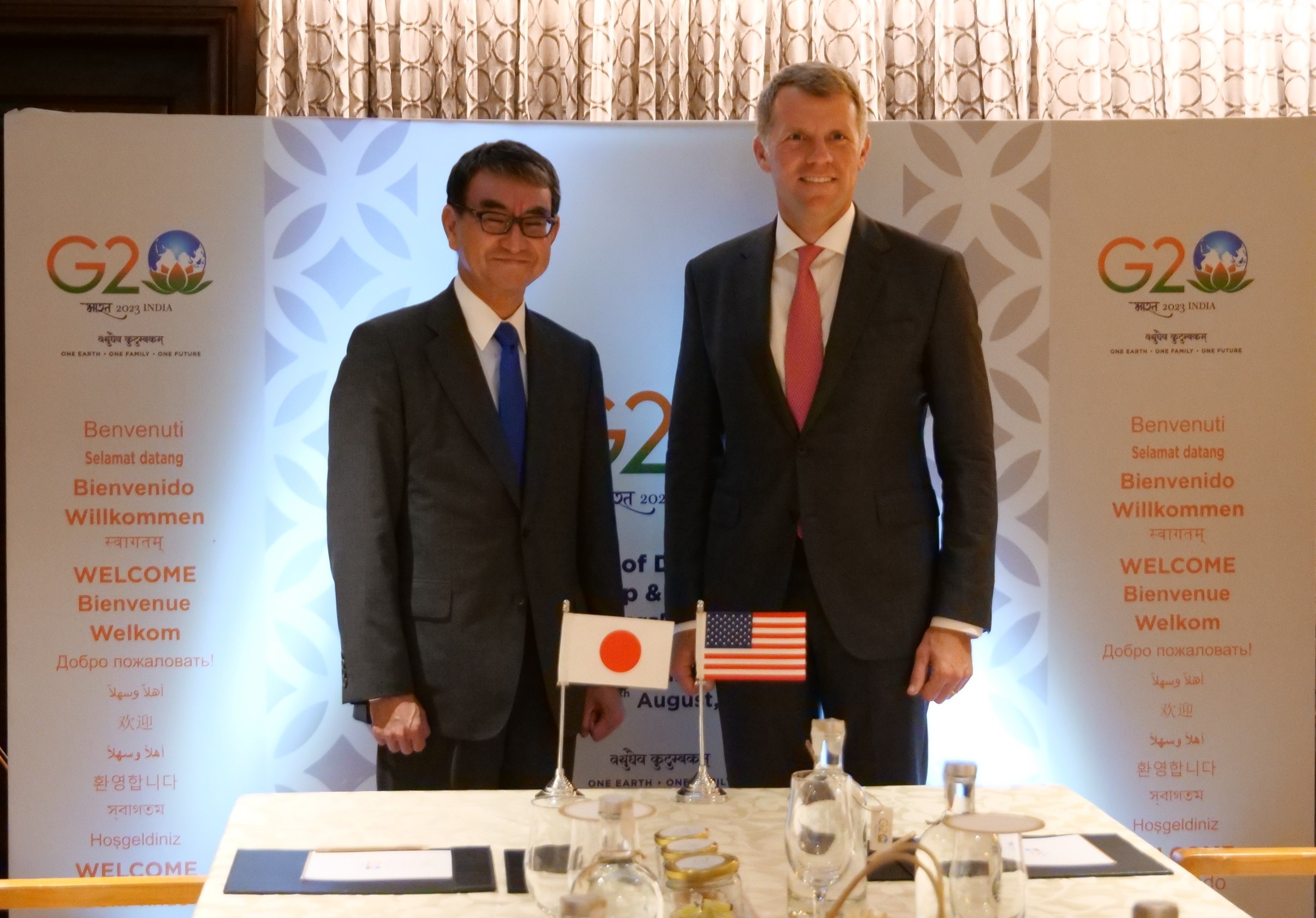
6. Brasil - Meeting with Mr. Juscelino Filho, Minister of Communications
Minister Kono had a meeting with Minister Filho of Brazil, the country that will chair the G20 next year. He explained the establishment of the IAP and outlined the process of DFFT since it was agreed at the G20 OSAKA Summit in 2019. He also asked Minister Filho to maintain the momentum of DFFT at the G20 next year. Minister Filho expressed his gratitude for the briefing on the important issue of data distribution. He acknowledged that in Brazil's DX transition, data distribution is a topic of great interest, and he looks forward to Japan's participation in the G20 next year. The ministers also discussed Brazil's priorities, such as AI, digital identity, governance, and re-skilling.
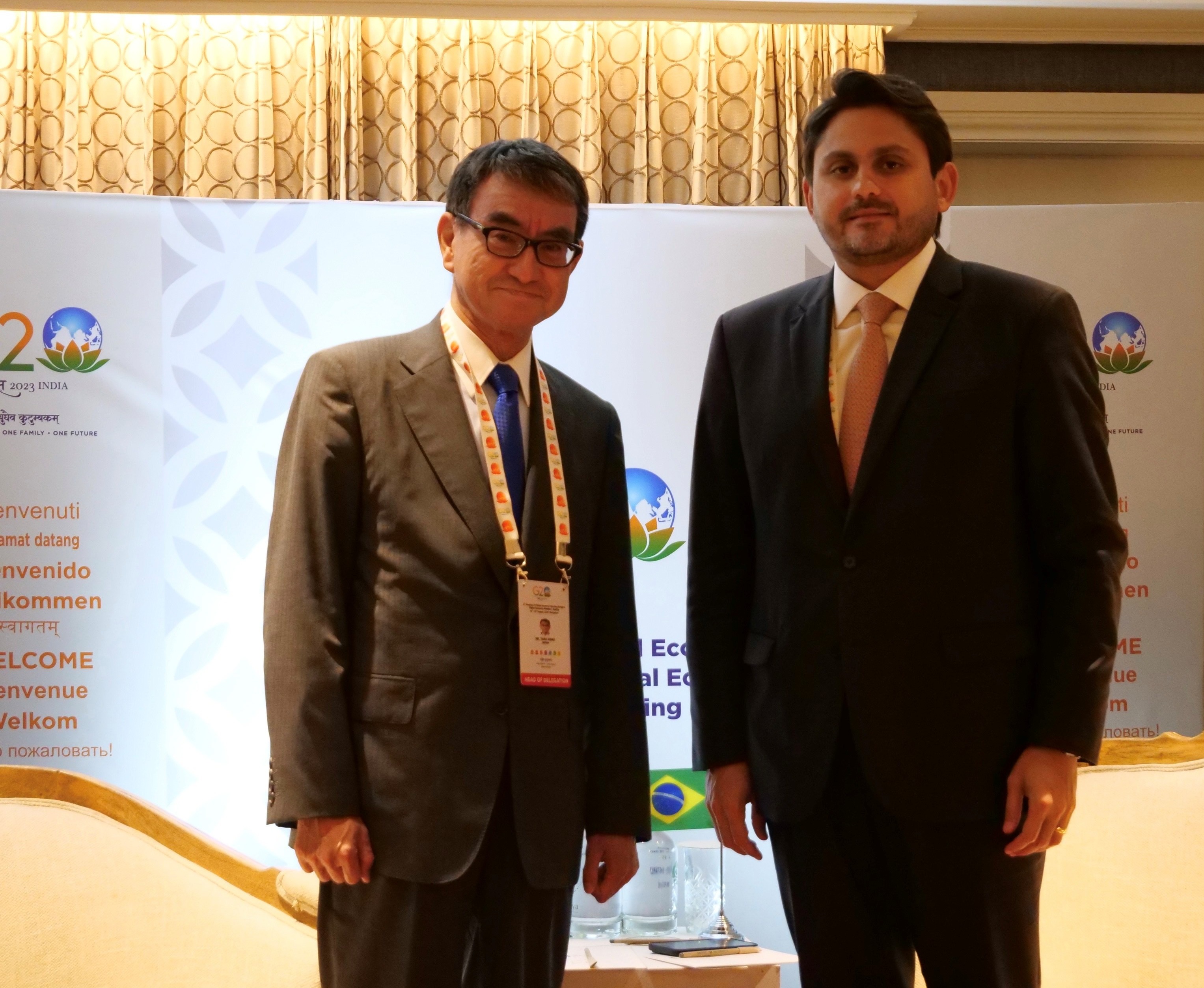
7. United Kingdom - Meeting with Mr. Paul Scully, Minister for London and Parliamentary Under Secretary of State (Minister for Tech and the Digital Economy)
Minister Kono expressed his gratitude on UK's cooperation in the G7 Digital and Tech Ministers' Meeting in Takasaki, Gunma and introduced the establishment of the IAP. The ministers exchanged views on the impact of data localization and strategies for promoting data openness through the IAP.
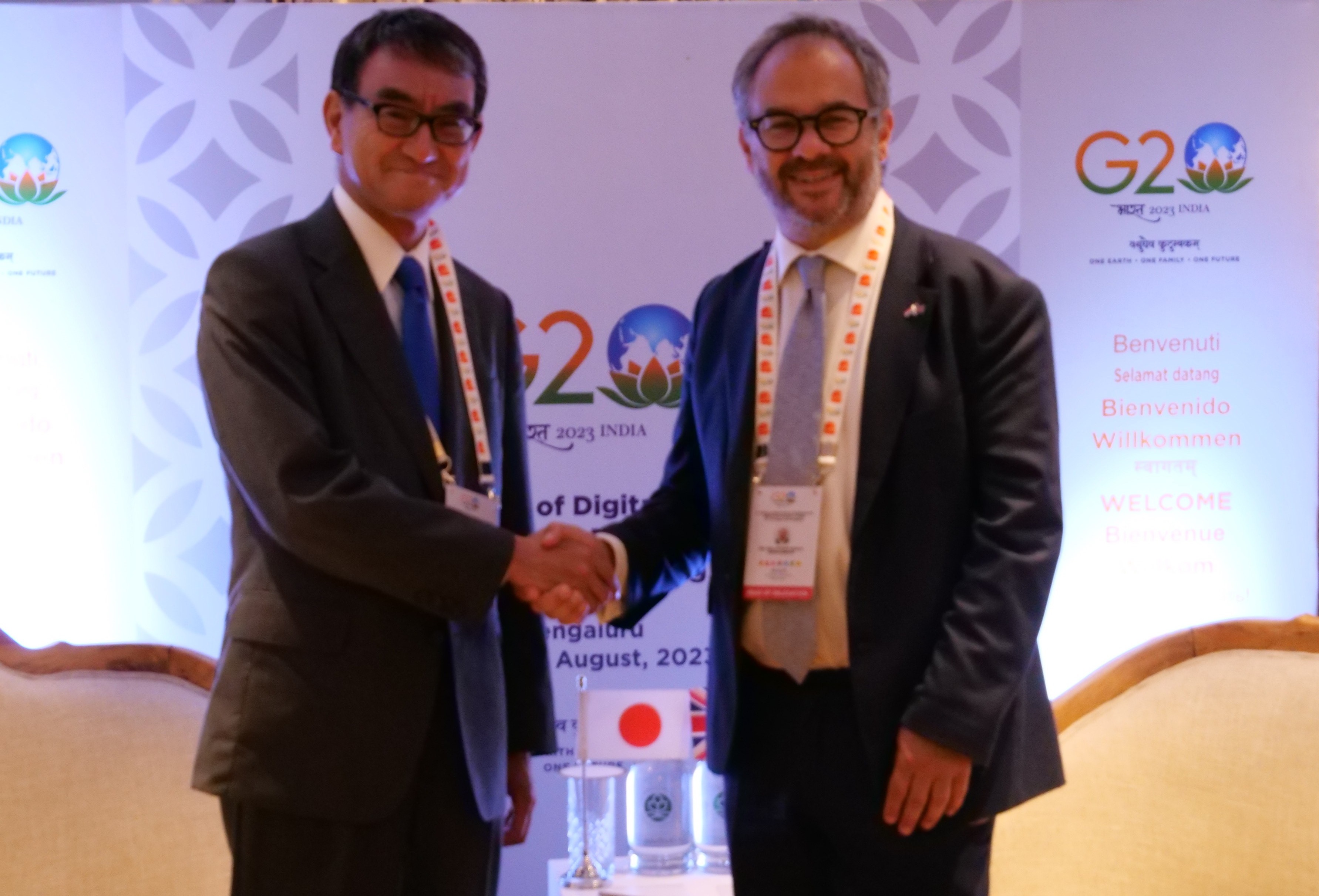
8. Mauritius - Meeting with Mr. Darsanand Balgobin, Minister of Information Technology, Communication and Innovation
Minister Kono had a meeting with Minister Balgobin of Mauritius, an invited country of the G20 this year. During the meeting, Minister Kono introduced the establishment of the IAP and received a positive response from Minister Balgobin, who emphasized the significance of participation in global initiatives for a country with a small population such as Mauritius. He also expressed a desire to learn from Japan's expertise in healthcare and ICT fields.
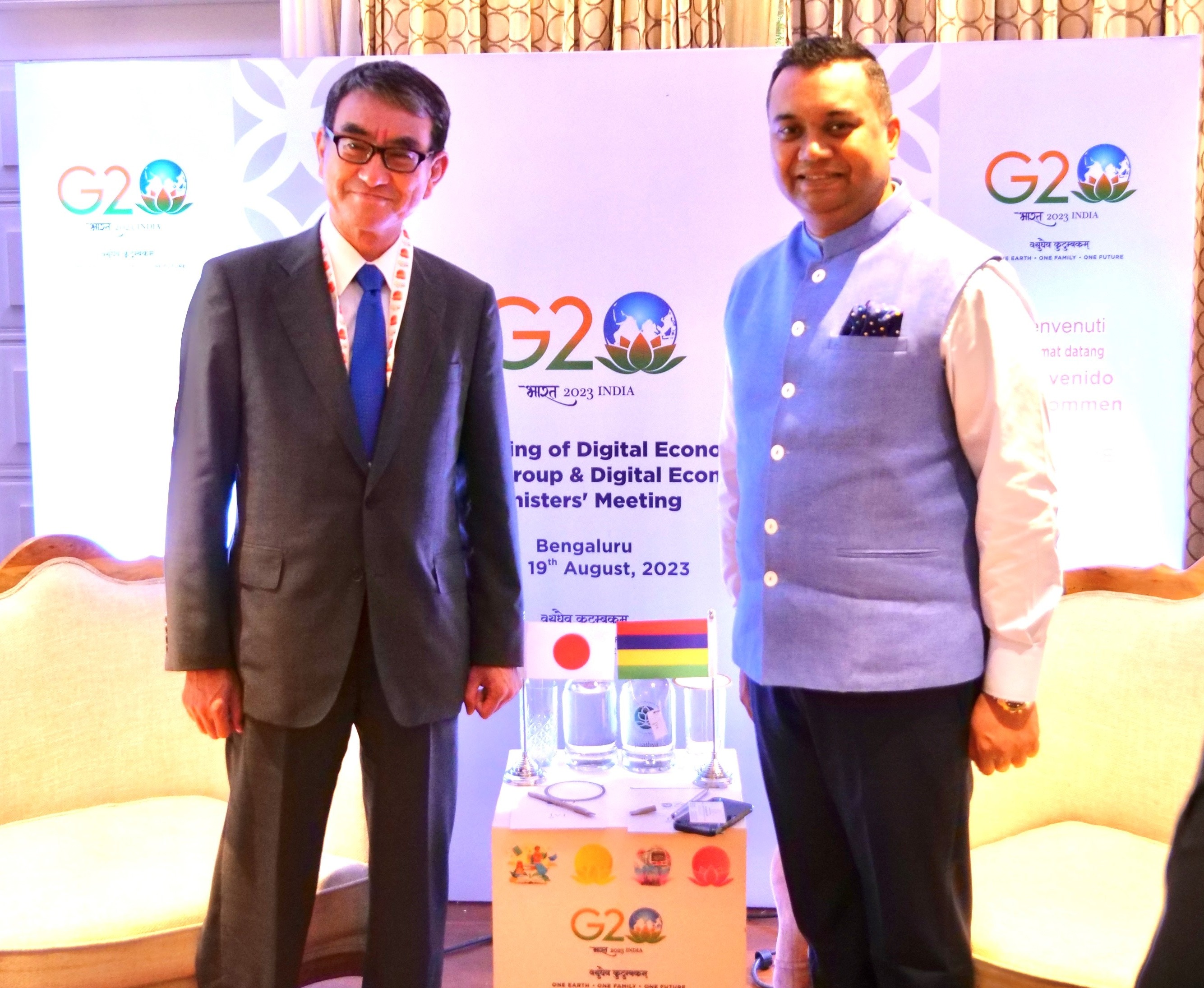
9. Oman - Meeting with Dr. Ali bin Amur Al Shidhani, Undersecretary Ministry of Transport, Communications and Information Technology
During the meeting, Minister Kono introduced the establishment of the IAP, and Minister Shidhani expressed his appreciation for Japan's initiative and emphasized the importance of data transfer. The two ministers also exchanged views on the significance of developing a legal system and ensuring adequate human resources for digitalization.
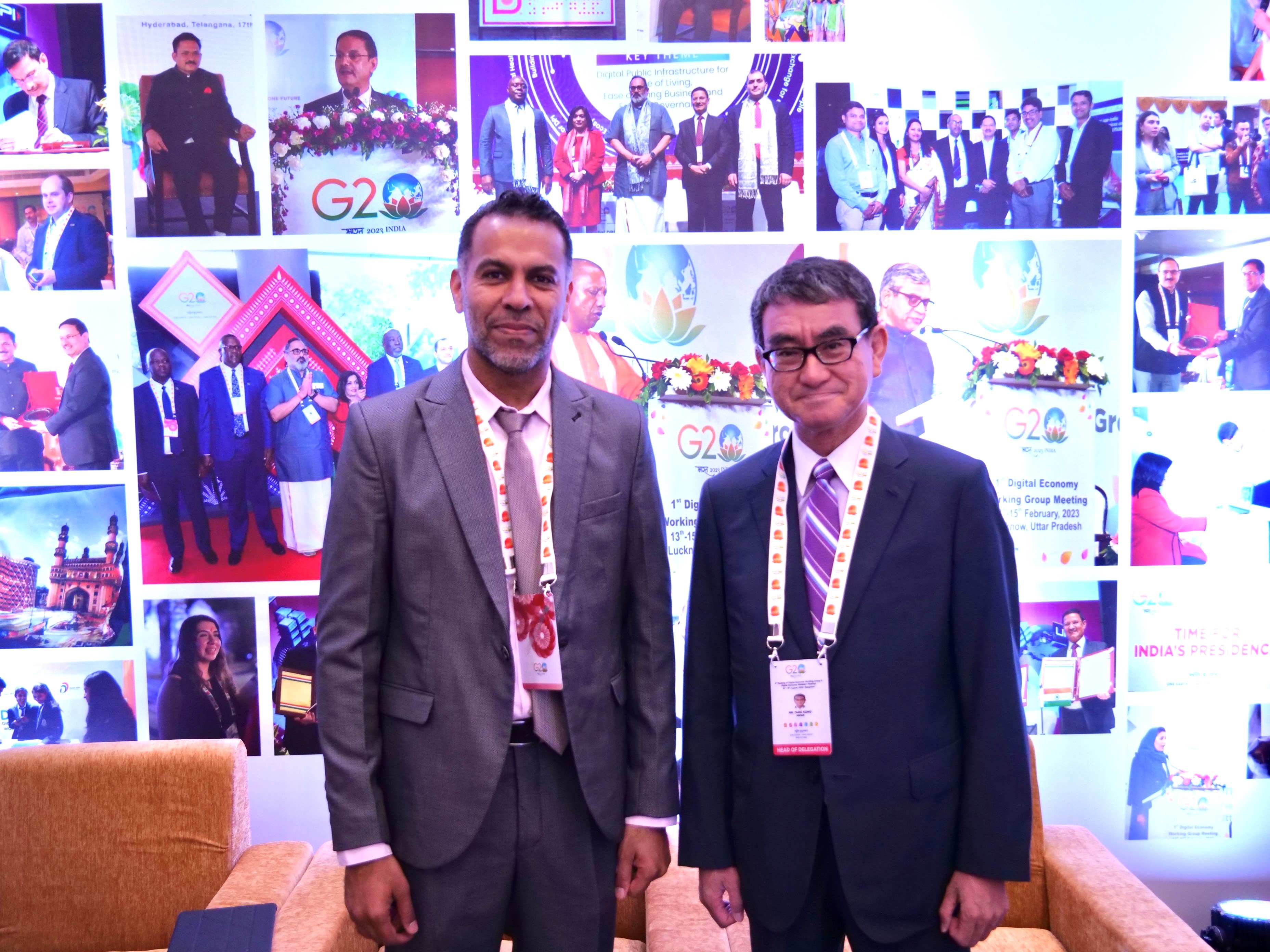
10. United Nations - Meeting with Mr. Amandeep Singh Gill, Under-Secretary-General, Secretary General's Envoy on Technology
Minister Kono explained the establishment of the IAP and the process of the agreement at G7 Hiroshima Summit to Mr. Gill and outlined the forthcoming projects of the IAP. They also exchanged views on the situation of data flows in each country, regulations in this area and effective ways to address the issue in the future.
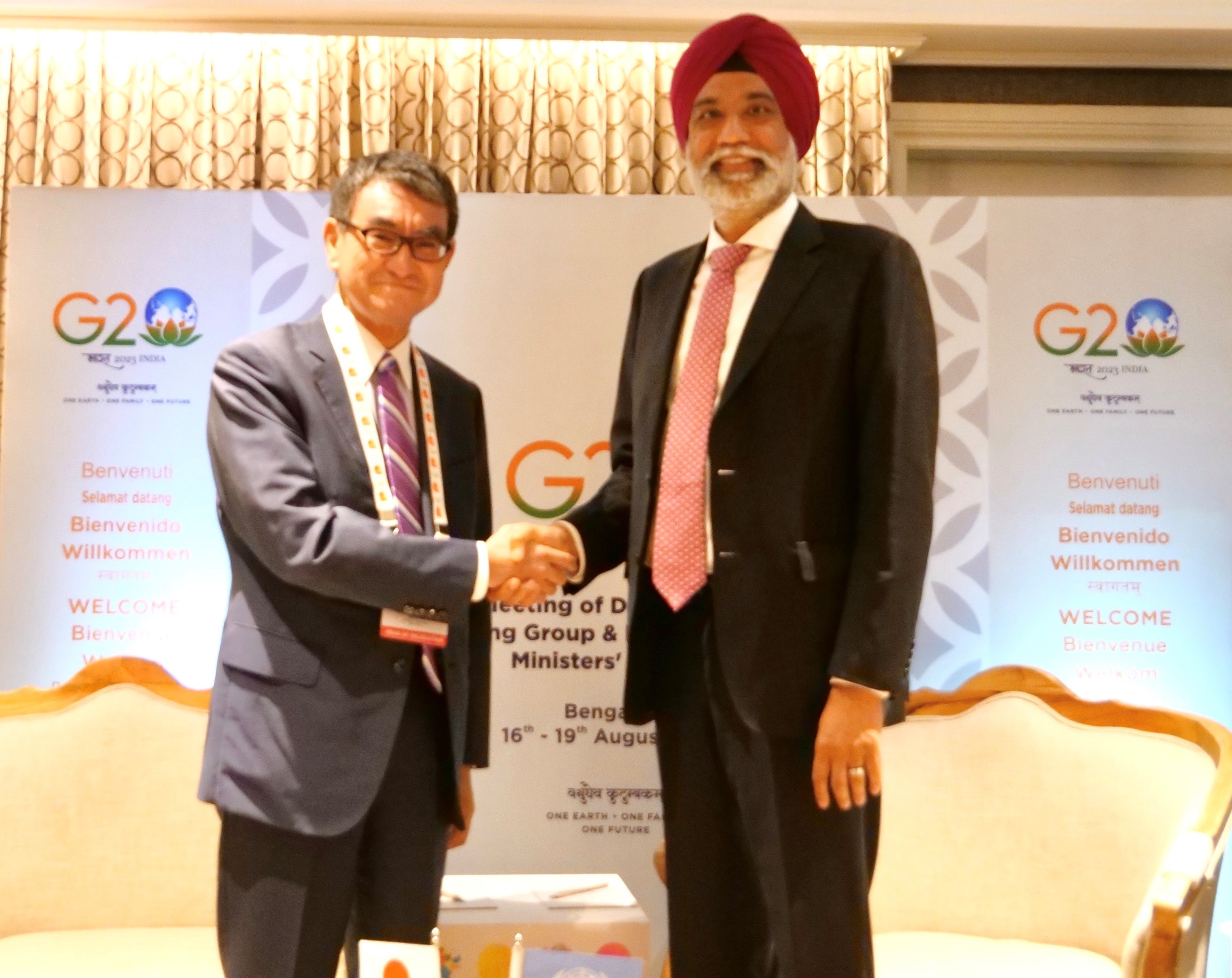
11. Singapore - Meeting with Mrs. Josephine Teo, Minister for Communications and Information, Second Minister for Home Affairs and Minister-in-charge of Smart Nation and Cybersecurity
During the meeting, Minister Teo briefed Minister Kono on the use cases in Singapore for the Unified Payments Interface (UPI) that India is implementing to other countries. She also shared examples of how Singapore digitalized its airport immigration and related operational reviews. Minister Kono explained the establishment of the IAP and emphasized future cooperation with ASEAN countries.
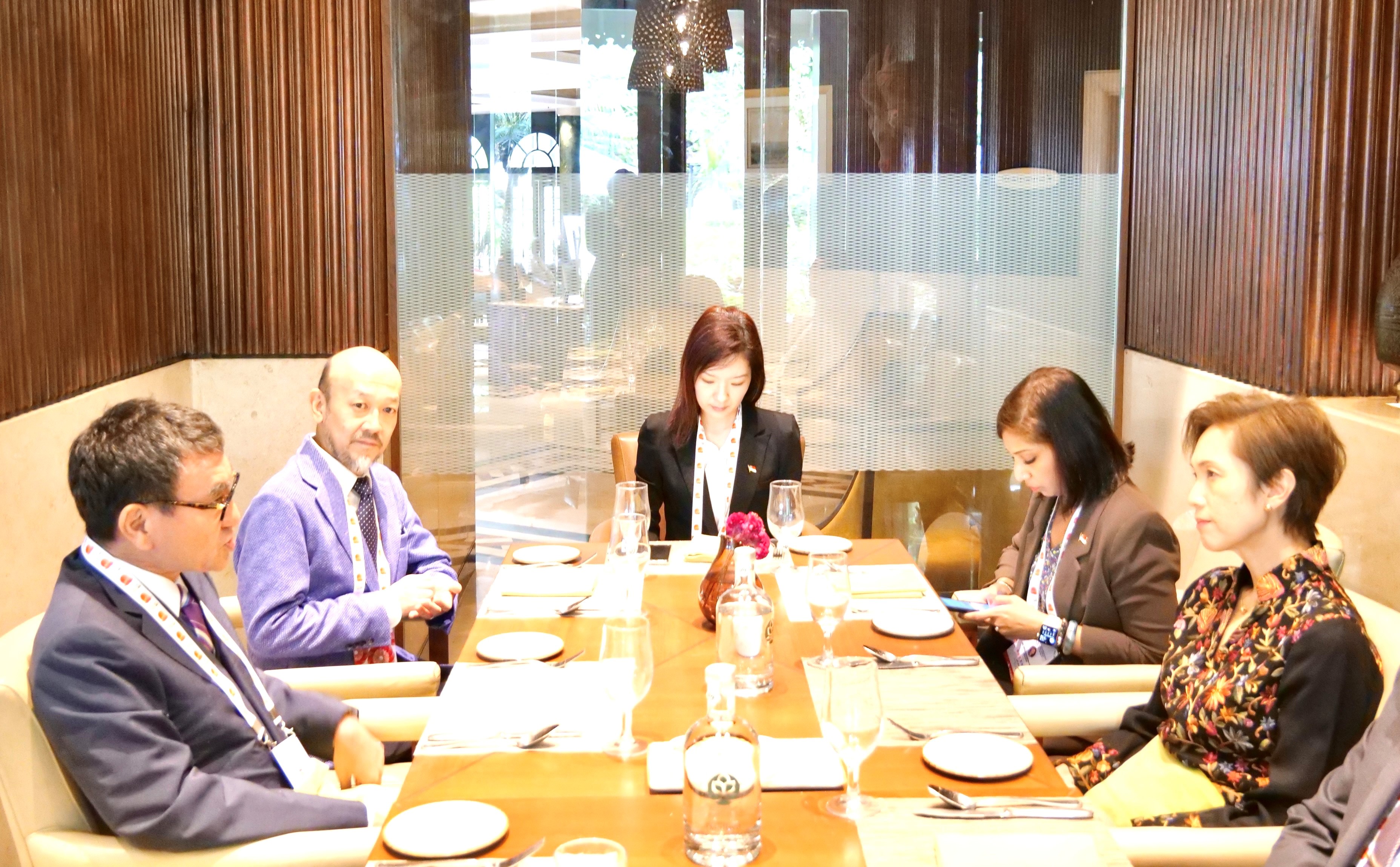
12. Germany - Meeting with Dr. Volker Wissing, Federal Minister for Digital and Transport
During the meeting with Minister Wissing, Minister Kono expressed gratitude for Germany's collaboration in the G7 Digital and Tech Ministers' Meeting in Takasaki, Gunma, regarding the IAP and asked for continued support for the future initiatives.
In response, Minister Wissing expressed appreciation for Japan's leadership at the G7 and emphasized that Germany also values the Hiroshima AI process. The ministers exchanged views on AI regulations, deepfake issues, and policies to address them.
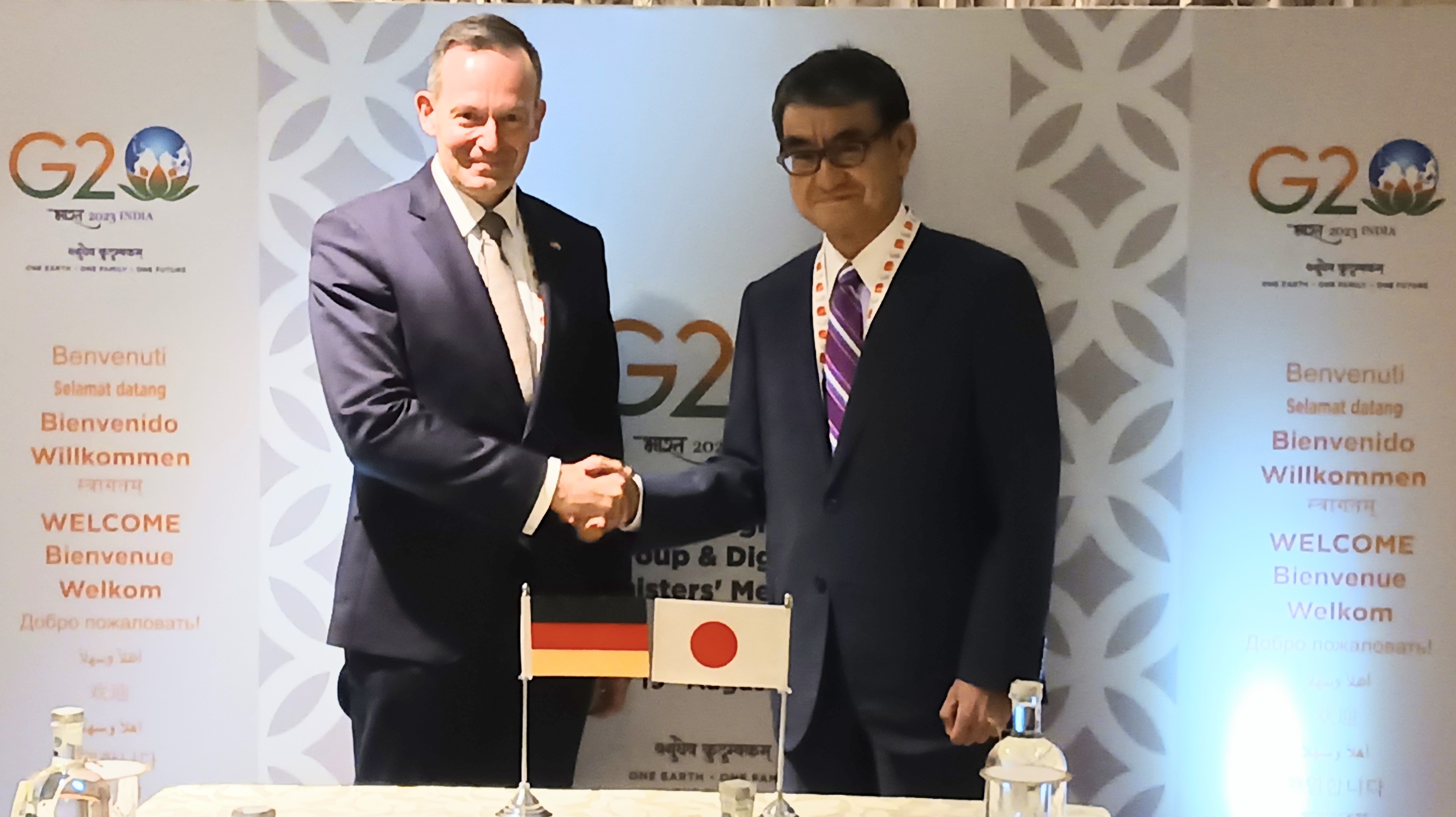
13. United Arab Emirates (UAE) - Meeting with Mr. Omar Sultan Al Olama, Minister of State for Artificial Intelligence, Digital Economy and Remote Work Applications
Minister Kono introduced the establishment of the IAP to Minister Olama and asked for cooperation on specific projects to address issues related to cross-border data flows. Minister Olama showed interest in CBPR (Cross Border Privacy Rules), of which Japan is a member, and discussed data distribution and the possibility of adopting the UPI in the United Arab Emirates.

3. Company Visits
Minister Kono visited several digital organizations and companies in Bengaluru, India, on August 18. During a visit to the non-profit organization that aims to develop an IT platform in India, he was briefed on the importance of data for India's digital ID and payment system, the status of its implementation in other countries, and exchanged views on the concept of data. He also visited the development center of an Indian digital company in Bengaluru and there he received explanation on creation of infrastructure to provide financial services to a wider range of people, agricultural information services to help solve food problems, and support for passport issuance to meet the demand for overseas travel by Indian citizens.
